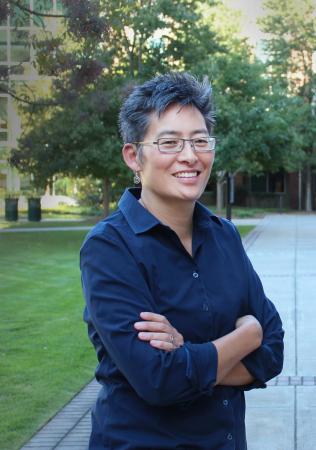Professor Lena Ting has been selected to receive Georgia Tech’s 2020 Senior Outstanding Undergraduate Research Mentor Award. She has mentored nearly 40 students who have gone on to successful careers in academic, industry, and public service. The selection committee noted, “the exceptional quality of the mentorship she has provided to her mentees.”
Ting, who holds the distinguished title of John and Jan Portman Professor in Biomedical Engineering, is a faculty member in the Wallace H. Coulter Department of Biomedical Engineering at Emory and Georgia Tech, and a researcher in the Petit Institute for Bioengineering and Bioscience. She is also a professor in the Department of Rehabilitation Medicine, Division of Physical Therapy, at Emory University’s School of Medicine.
She is a pioneer in the nascent area of neuromechanics and is piecing together a new understanding of how movement intention translates to action through the complex interplay between the nervous system and the musculoskeletal system.
Discoveries from the Ting lab are being leveraged by researchers around the world to understand both normal and impaired movement control in humans, and to develop better robotic devices.
Media Contact
Walter Rich
Keywords
Latest BME News
Jo honored for his impact on science and mentorship
The department rises to the top in biomedical engineering programs for undergraduate education.
Commercialization program in Coulter BME announces project teams who will receive support to get their research to market.
Courses in the Wallace H. Coulter Department of Biomedical Engineering are being reformatted to incorporate AI and machine learning so students are prepared for a data-driven biotech sector.
Influenced by her mother's journey in engineering, Sriya Surapaneni hopes to inspire other young women in the field.
Coulter BME Professor Earns Tenure, Eyes Future of Innovation in Health and Medicine
The grant will fund the development of cutting-edge technology that could detect colorectal cancer through a simple breath test
The surgical support device landed Coulter BME its 4th consecutive win for the College of Engineering competition.








